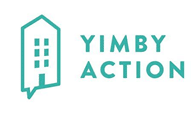Published on:
Describing their members as “simply everyday people who have experienced and seen the negative impacts of scarce and expensive housing,” a group of young housing advocates known as “Yes in My Backyard” (YIMBY) Action has grown to 49 chapters across the U.S. (including Washington state). Organized as a social welfare organization, YIMBY Action believes the housing problem is political and thereby tries to affect change by engaging politically.

Executive Director Laura Foote says members lobby, pressure, plan, and strategize at all levels of government to foster a more positive political environment for housing. Supporters across the political spectrum are part of the movement to increase housing supplies where housing costs are unattainable for many.
“YIMBYs see scarce housing as the result of shortsighted and discriminatory laws which we know we can change when enough citizens speak up and vote,” the group states on its website. All levels of government have passed harmful laws resulting in the housing shortage, according to YIMBY.

In an interview with Dean Wehrli, principal at John Burns Research & Consulting, Foote acknowledged no one disagrees that America faces a housing shortage, but she believes NIMBYism (Not in My Backyard) exacerbates that shortage in cities across the country. The resulting shortage and rise in housing prices means NIMBYs help price out new housing wherever they hold sway.
Members advocate for research-backed policies to increase the supply of market-rate and government subsidized housing, saying their policies are informed by pragmatism.
Specific changes are needed to undo racist housing policies and to fight poverty and homelessness. Current solutions identified as part of the YIMBY Action policy platform to boost supply include:
- Legalize housing. Allow more housing in every neighborhood, “especially historically affluent and exclusionary neighborhoods.” YIMBY has advocated for density bonuses, legalizing Accessory Dwelling Units, California’s More HOMES Act (EB 50), and zoning overlays.
- Fund affordable housing. YIMBY supports increasing funding for income-qualified housing through a wide variety of mechanisms, including direct subsidies. Policies it supports include bonds for affordable housing, increasing Section 8 funding, and using existing government resources to increase funding for subsidized housing.
- Increase housing stability. YIMBY calls for enacting policies that support current residents having stable housing choices amid growth. That support includes laws that protect tenants and policies that protect vulnerable communities.
- Streamline permitting. Even when housing is technically allowed, YIMBY Action believes complicated and arbitrary permitting can slow, shrink, or stop housing in practice. To solve this, jurisdictions need to make housing permits “fast and fair, removing arbitrary barriers to both subsidized affordable and market rate housing.”
- Fix incentives. YIMBY points to poorly designed tax structures for contributing to the high cost of housing. Such structure can incentivize communities to say no to new homes, including tax systems and car centric transportation systems. States need to offer more help to local governments to fix broken incentives. Policies YIMBY supports include eliminating parking requirements, improving regional coordination on transit, and reforming broken tax policies that discourage residential building.
YIMBY says its policies are “not set in stone,” noting it has revised its policy platform in the past and expects to do so going forward as the movement grows and new perspectives are incorporated.
YIMBY is believed to have its origins in San Francisco Bay Area in the 2010s due to rising housing costs associated with the growing tech industry.
People who are interested in getting involved are invited to subscribe to its news platforms, attend a training or intro event, follow YIMBY on social media, and connect with local chapters and affinity groups. YIMBY lists chapters in Seattle and Spokane, noting the local level is where YIMBIY Action sees the most action.